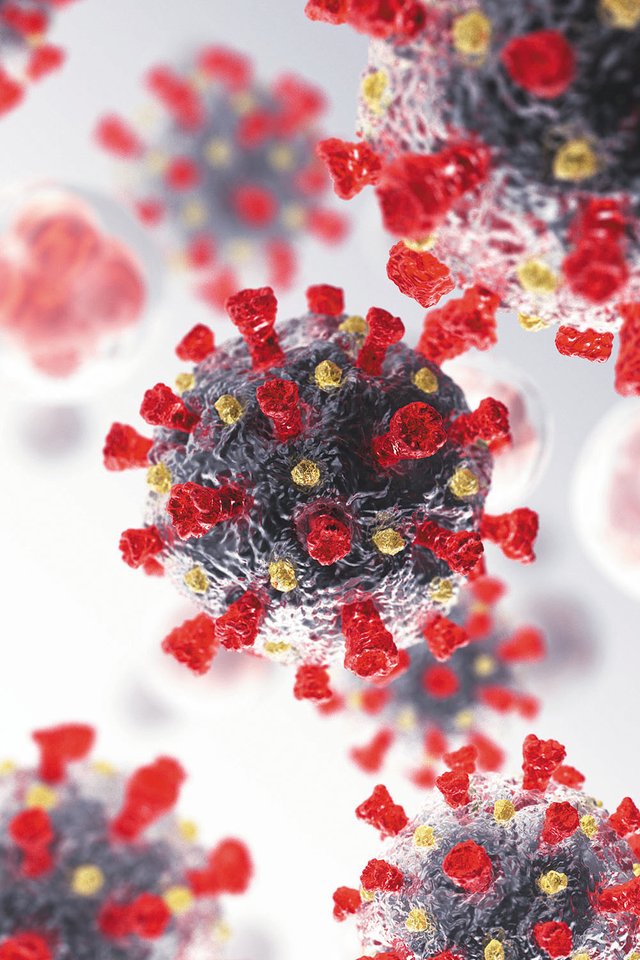What to expect after COVID

Experts say that while much remains to be seen about the long-term effects of COVID, it is hoped that more details will be available soon.
A growing number of Americans are now experiencing COVID-19, and doctors are just beginning to learn more about the effects of infection.
"Reports come out explaining the long-term lung effects - which is not surprising because cuts can also cause a permanent disability - as well as the effects on the nerves, heart, and kidneys," said Dr. David Christiani, a professor of medicine at Harvard School of Medicine and pulmonary specialist at Massachusetts General Hospital.
Some people, now called long-term sufferers, also report that their COVID symptoms continue to drag for weeks or months from their initial onset. These symptoms include everything from headaches and cognitive problems to mood swings, fatigue, decreased exercise tolerance, and physical pain.
“We are learning more about the effects of COVID-19 as the months go by and our knowledge grows,” said Dr. Christiani, who is also the director of the Environmental and Occupational Medicine and Epidemiology Program at Harvard T.H. Chan School of Public Health. "There appear to be long-term consequences; it will require further study to determine, for example, if some of these long-term effects are the result of long-term ICU stay and serious illness of any kind, compared to certain aspects of the virus infection."
Post-COVID results
Although much may be known about COVID-related post-infection symptoms, long-term effects appear to be more likely in people with certain risk factors (such as high blood pressure and obesity) and in adults, according to the World Health Organization. People may also have a chance of getting permanent symptoms if they have a serious infection caused by a virus.
However, while many people who experience chronic symptoms have a causal risk, young and healthy people may also be affected. The World Health Organization reports that in a telephone study of adults with symptomatic COVID, 20% of 18- to 34-year-olds reported experiencing lasting results from the virus.
There is still much unknown
This may make you wonder what the consequences might be if you become infected, and what you can and should do behind the scenes to protect your long-term health. The fact is that because the virus is new, doctors do not fully understand why some people do not fully recover from COVID, how many people are affected for a long time, or whether these problems will be resolved in time.
"There is little published information about recovery after COVID-19," said Drs. Eric Rubin, professor of immunology and infectious diseases at Harvard T.H. Chan School of Public Health. Therefore, at this point, it is difficult to give people specific guidelines to follow or to know exactly what to expect.
"Since this is a new disease, we have little idea of what recovery will look like. How widespread this is and how bad this is, we do not know yet," he said.
That means there are things that doctors feel confident about, even in this early stage.
Recovery can take time. Most people who get the flu or any other form of serious respiratory infection do not go back immediately. Restoration is a process, and this is already true with COVID as well. "Usually, when the first infection becomes very severe, recovery can be very difficult and take a long time," said Dr. Rubin. People with severe pneumonia, acute respiratory illness (ARDS), regardless of the cause, often experience longer recovery times. "This appears to be true in patients who develop ARDS as a result of COVID-19. Part of this is due to slow or limited recovery from lung function, so breathing, especially with exertion, is common," said Dr. Rubin.
Hospitalization can lead to long-term recovery. Some of the struggles to return to normalcy for many people who have suffered from serious illnesses may be due to the weight loss that occurs when people lie in a hospital bed fighting the virus. Therefore, in addition to recovering from an illness, they also need to regain their strength, says Dr. Rubin.
Problems may require consistent compliance. In patients experiencing certain complications, follow-up monitoring and treatment may be required. What makes the new coronavirus different from other respiratory viruses is that it not only affects the lungs but can also lead to blood clots that can cause strokes and damage to the heart and other organs, says Dr. Rubin. "Some patients may have suffered kidney damage during their illness," he said. "Any patient with a limb injury may need further treatment and follow-up tests according to the specific problem."